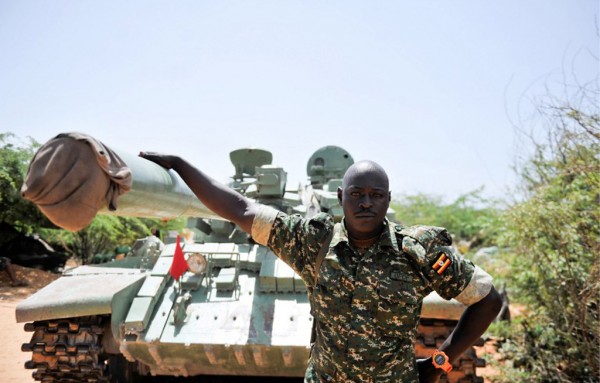
Whenever I have an opportunity to talk to British Diplomats I find them really interesting. They have mastered the art of diplomacy. They do not even belabor to convince you of their world point of view. They just use examples here and there – then leave you to make up your mind whether this or that approach will work or disadvantage you as a country.
In the Easter week, The British Deputy High Commissioner to Uganda, Sarah Mann paid a courtesy call to Uganda Media Centre. Only two months in the Mission, she made UMC one of the first stop government institutions to visit. She commended Uganda on the AMISOM peace keeping role in Somalia and other peace efforts in the region.
The UMC team, led by the ED, the indefatigable Ofwono Opondo had useful & candid interaction with the diplomats. The Deputy High Commissioner was accompanied by Samuel Paice, Head of Communications at the British High Commission in Uganda.
Most new diplomats visit Uganda Media Centre because they want to understand the Media terrain in totality. They also find that the Centre is the best placed government institution to scan the media-political horizon for them, especially looking at Government take on things. Diplomats use such interactions to form a view or perspective on certain issues.
In this particular interaction – the usually no holds-barred Ofwono was really diplomatic, surprisingly; taking his time to dissect issues from the way government sees and handles them. His candor only surfaced at some point when the diplomats appeared to plead the case of a troublesome Foreign Correspondent to practice his trade in Uganda. “If we object to a Journalist operating here because there are security reports on him, BBC, Aljazeera or whoever – should recall him/her and assign a new one’ – Ofwono told them. Samuel Paice gently let it be known that Editors of International Media rarely want to shuffle their staff simply because someone else is telling stories about their Correspondents. Opondo replied that – ‘Uganda could even deport’ any one if there is sufficient grounds to make them ‘undesirable aliens’. He went on: “we do not accredit foreign Journalists on the say so of any power or influence, save for their Professional acumen and acting within the Laws of Uganda” I noticed the junior diplomat wince!
Relations with the United Kingdom are historical and important. There is a strong bilateral relationship and significant development partnership between the two countries. British aid is mainly towards the implementation of poverty eradication action plan (PEAP) but also in areas such as civil service reform, Police, education, health, judiciary and Defense. The British Department for International Development (DfID) is Her Majesty’s key institution in this Endeavour. UK also pushed for debt cancellation for African countries including Uganda in recent years. They are friends indeed.
On our part, we push for access to the UK market for Uganda’s exports, e.g. processed coffee, fish, fruits, tea, tobacco & fresh flowers just to mention a few. We continuously seek out direct foreign investment from UK businesses and it is our collective duty to cultivate, project and sustain a positive image about Uganda in UK and elsewhere through our diplomatic service and other avenues.
Other key areas we look at are promoting Uganda as a preferred tourism destination as well as transfer of technology in various sectors.
Uganda was recently one of the first few African countries to host the British Foreign Secretary, Boris Johnson after Brexit. Although it surprised many, as a keen observer of British politics, I knew that a post-Brexit Britain would intensify links with the Commonwealth. It followed then, that the premier Diplomat should be paying attention to Uganda & a few other places on the continent.
While Boris Johnson was in Kampala, I was reminded of his comments in a Column he wrote for The Daily Telegraph in 2002 when Tony Blair visited DRC Congo. “the AK-47s will fall silent, the pangas will stop their hacking of human flesh, and the tribal warriors will all break out in watermelon smiles to see the big white chief touch-down in his big white British taxpayer-funded bird” Boris wrote!
It’s the kind of colonial-era prejudice that is impossible to imagine any other serious British politician invoking in public. Only Boris could get away with such in politically correct Britain. He had to retract the comments while running for Mayor of London in 2008 – “I am sorry for what was previously written as it does not reflect what is in my heart” Boris said to The Guardian. Let’s see what his reign as top diplomat for Her Majesty’s government will bring to UK & other territories.
Dennis Katungi – Communications & Media Relations Manager – UMC
